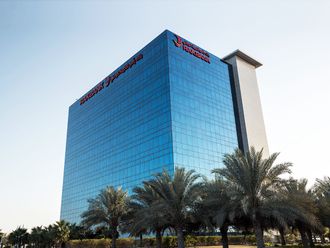Dubai: The UAE needs a Sharia board to standardise products in Islamic finance, Hamad Bu Amim, president and chief executive of Dubai Chamber of Commerce and Industry.
“I think we should have a Sharia board to progress forward. The way we operate right now is that each bank has a Sharia board,” said Bu Amim. Last month, Oman unified its Sharia board.
Malaysia ranks first in the ICD-Thomson Reuters Islamic Finance Development Indicator, which takes into account quantitative development, governance, social responsibility, knowledge, and awareness. Oman and Bahrain rank second and third in the list followed by UAE.
Dubai today is the third global centre for sukuk following the recent listing of $750 million (Dh2.8 billion) sukuk by the Government of Dubai, as well as plans by Hong Kong to list its first successful offering of $1 billion (Dh3.68 billion) Sukuk on Nasdaq Dubai.
In addition according to global raging agency, GCC Islamic banks’ asset growth is outstripping their conventional peers especially in Qatar and Saudi Arabia. Despite similar credit growth environment across the GCC, Islamic banking asset growth across the region differed largely due to differing volumes of government spending and the level of government support the Islamic banking sector received.
UAE based Islamic banks’ aggregate asset base grew by 16 per cent between 2009 and 2013. Islamic banks in Qatar grew their balance sheets by 28 per cent between 2009 and 2013 as they capitalised on the government’s large investments while Islamic banks in Saudi Arabia have increased their balance sheets by 17 per cent on average over the same period. Banking professionals expect standardisation could enhance asset growth and product innovation in Islamic finance.












